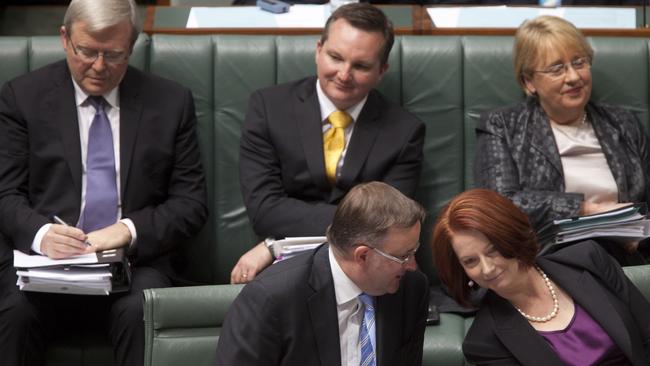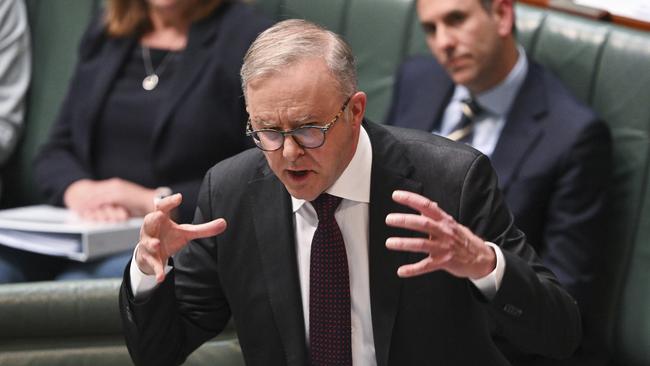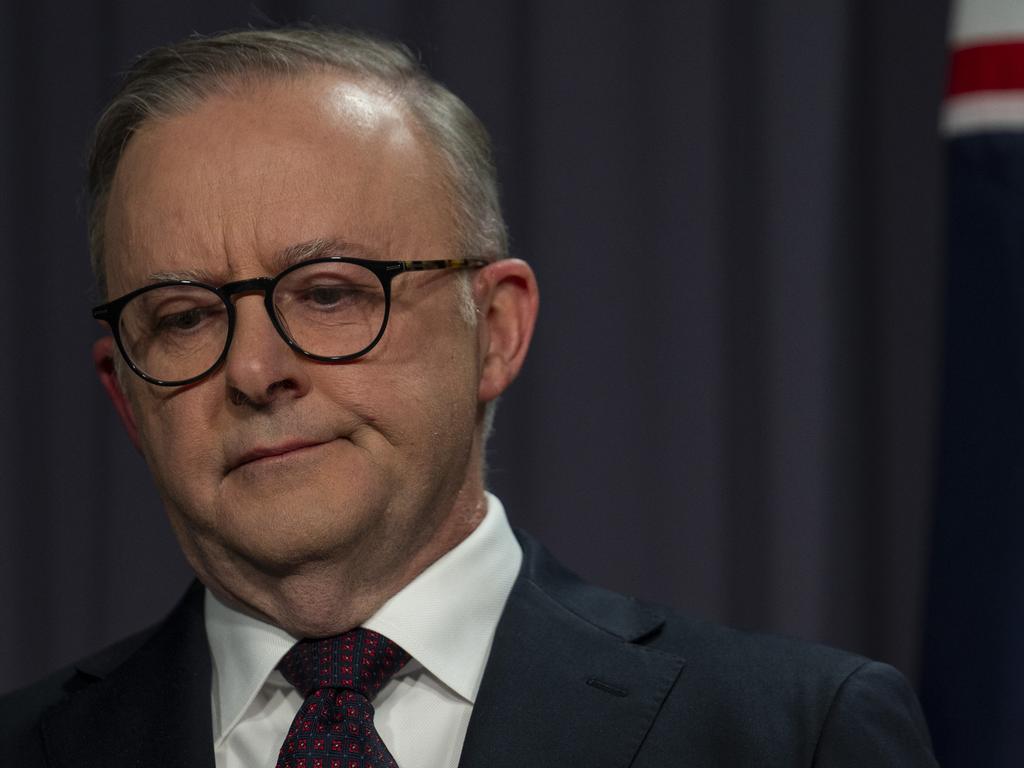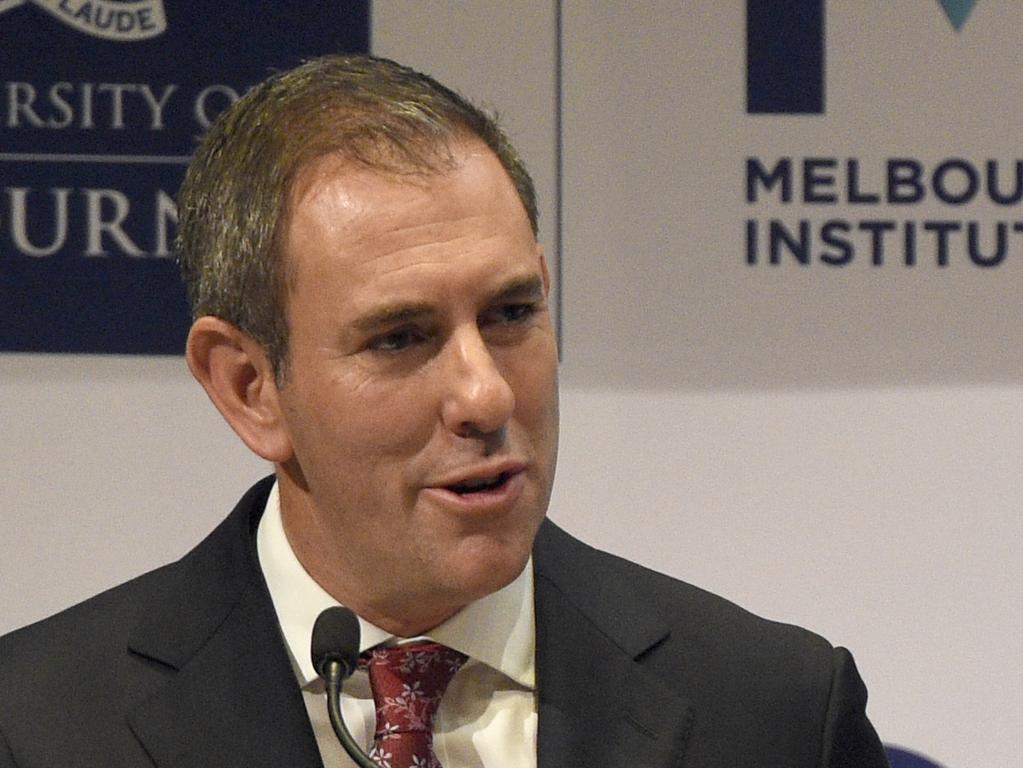Newspoll shows Anthony Albanese is follows Julia Gillard and Kevin Rudd down the tubes


Indeed, on some measures Albanese’s support and the ALP primary vote as shown in Newspoll are worse at this stage than they were for both his immediate Labor predecessors.
While it is highly unlikely Albanese will suffer the same fate as Rudd and Gillard at the hands of Labor MPs the fall in voter support for the PM and primary vote for the Government is a grim warning from recent political history.
A combination of faulty political judgment, policy blunders, administrative mistakes, legislative failure, a lack of unified ministerial messages and a deep public belief Albanese has been distracted and not paying attention to detail means that the government is going into the summer break and beyond the half-term point with its lowest primary vote and highest dissatisfaction with Albanese’s performance.
According to the latest Newspoll, Labor’s primary vote has slumped to just 31 per cent — less than it’s election vote in May last year — and satisfaction with Albanese’s performance as Prime Minister has dropped to 40 per cent and dissatisfaction up to 53 per cent — a net approval rating of minus 13 points — his worst since the election.
That’s a fall in Labor’s primary vote of five percentage points since October and a seven-point rise in voter dissatisfaction with Albanese in the same period.
In themselves these figures are certainly not grounds for removing a leader but there are trends emerging which suggest Labor’s position could be worse early next year when there is only about 12 months to when an election must be called.
Of course, the searing experience of many of the Labor MPs who were in the Rudd-Gillard turmoil and still serving, will put a brake on loose talk about leadership change - after all Gillard took Labor to minority government in 2010 and Rudd, on his return in 2013, lost the election heavily to Tony Abbott.
But, messages coming from the public now about misplaced priorities, leaders being out of touch, unpopular policies on climate change and tax and disunity are similar to the complaints of the last months of the Rudd and Gillard leaderships.
Rudd, like Albanese, had a long political honeymoon and high voter satisfaction with a solid Labor primary vote in Newspoll surveys, but for Rudd the turnaround started quickly and accelerated. After record highs early in his prime ministership Rudd started to suffer a fall in support in October-November 2009 with voter satisfaction dropping 22 points from its record high and primary vote falling 16 points from its high to 56 per cent and 41 per cent respectively.
There was a further fall in February-March 2010 and an even greater fall in April-May 2010 after bungled immigration decisions, climate change fatigue and a proposed mining tax. Voter satisfaction with Rudd fell to 39 per cent and the ALP primary vote fell to 35 per cent.
Rudd was removed soon after when a Labor state by-election loss in the western suburbs of Sydney was blamed on federal Labor.
Gillard had a much lower platform to begin with and lost Labor’s majority in 2010. She went on to lose even more support after the Wattle Day massacre in September 2011 when she did a carbon tax deal with the Greens.

But she recovered briefly and by October November 2012 had regained ground only to go into the 2012 summer break with see-sawing poll numbers and rising internal division.
By February-March 2013 as Parliament resumed Gillard had started to fail in the polls again and satisfaction with her performance fell to 26 per cent and dissatisfaction rose to 65 percent. Labor’s primary vote was down to 30 per cent.
Within three months Gillard was removed and replaced with Rudd for a second time who had a brief rise in ratings until losing the election in September.
While reason, logic and commonsense would suggest there is no real threat to Albanese there is terrible propensity to panic at this time in the electoral cycle — not just Labor — when trends start to go bad in polling as bad decisions turn off voters and the inexorable timetable of elections and parliamentary sittings starts to play on politicians minds.
There is still time for Albanese to turn the trends around but it is going to take a big, concentrated effort and be much improved on what has been on display since October.






Anthony Albanese as Prime Minister is on the same downward trajectory in voter support and at a similar time in the parliamentary and electoral schedule as Kevin Rudd and Julia Gillard in the months before they were removed as Labor leaders.